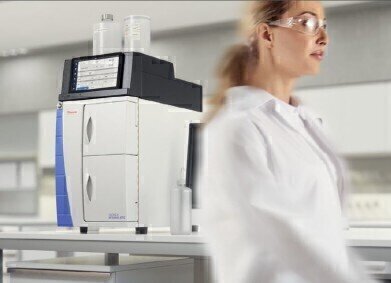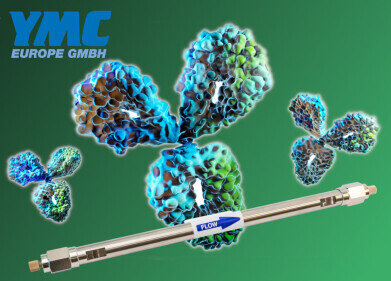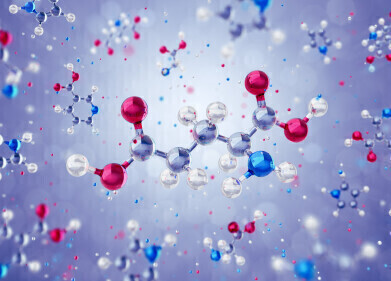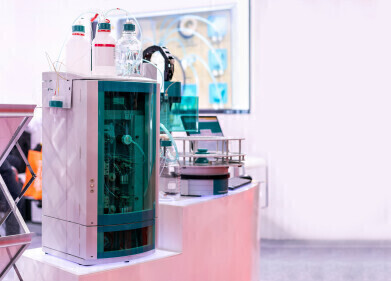Ion chromatography (IC)
Sweet enough - Why it’s important to test carbohydrate levels in foods and beverages and how to do it accurately?
Feb 05 2016
What is carbohydrate analysis used for?
- Product development
- Raw ingredient testing
- Quality assurance
- Process monitoring
- Labelling control
Why is carbohydrate analysis performed?
• Understanding health-related issues such as obesity, diabetes or cardiovascular diseases
• Constituent testing for new product development
• Compliance with Food Quality Standards
• Legal requirements for accurate food labelling
The current challenges in carbohydrate testing.
Challenge: Ensuring regulatory compliance
Solution: Better method reproducibility and validated protocols are required to meet standards of regulatory bodies such as the FDA, ACAC, ISO and Chinese FDA
Challenge: Performing sample derivitization is time consuming
Solution: Companies and food standards agencies are moving towards methods that provide direct, selective and sensitive determination without sample derivitization
Challenge: There is frequently no dedicated instrument for routine analysis. Available systems arecomplex to operate
Solution: Dedicated instruments that are easy to use
Challenge: The large dilutions required for food and beverage samples can be in the tens of thousands and impact the downstream accuracy of results
Solution: Minimizing errors associated with improved sample preparation techniques
Challenge: Increasing pressure to decrease turnaround time from sample to results
Solution: Increasing throughput capabilities of instruments, workflows and associated protocols
Now scientists in environmental, food safety, pharmaceutical and industrial/petrochemical laboratories can rely on a new flexible and configurable high-pressure ion chromatography system designed to deliver exceptional performance, productivity and efficiency.
The Thermo Scientific Dionex Integrion High-Pressure Ion Chromatography (HPIC) system, the newest addition to the Thermo Fisher Scientific ion chromatography portfolio, is intuitive and easy-to-use, and capable of addressing challenging laboratory workflows.
“The new Dionex Integrion HPIC system delivers innovation from the inside out,” said Evett Kruka, vice president and general manager, ion chromatography and sample preparation, Thermo Fisher. “With 40 years of expertise and innovation in ion chromatography, we have worked closely with our customers to develop a system on which they can rely to produce accurate and reproducible results, under a variety of conditions and circumstances. Whether scientists are using IC technology to analyze water, food and beverages, biofuels or pharmaceuticals, the Dionex Integrion HPIC system offers flexibility, ease-of-use and configurability to meet their evolving needs.”
The Dionex Integrion HPIC system delivers features previously available only on Thermo Scientific high-end systems, including high-pressure capability and optional electrochemical detection. With a simple, logical, flow-based plumbing layout and integrated performance features, including whole-system smart monitoring, the Dionex Integrion HPIC offers fast run times in a robust and reliable system. Additional features may include:
Easy-to-install IC PEEK Viper Fittings that enable easy operation and minimize peak dispersion and band broadening-ultimately improving chromatographic resolution.
- Detachable tablet with local language support that allows the flexibility to access IC controls even while away from the instrument.
- Consumables device monitor that regulates installation errors by logging and tracking both system and consumable performance-storing data in a secure, cloud server that improves preventative maintenance and maximizes uptime.
- Thermally regulated detector compartment that provides extended life to consumables.
- Thermo Scientific Dionex Chromeleon Chromatography Data System (CDS) software to streamline workflow from samples to results quickly and easily.
Also new to the Thermo Scientific IC portfolio is the Dionex Aquion IC system, which brings reliability in a compact platform and the simplified operation needed for routine IC analysis. Based on the company’s reliable ICS-1100 platform, the system features electrolytic suppression for consistent performance and ease-of-use, an optional column heater for improved reproducibility and an optional vacuum degasser for improved baseline stability.
Events
Apr 22 2025 Kintex, South Korea
Analytica Anacon India & IndiaLabExpo
Apr 23 2025 Mumbai, India
Apr 27 2025 Portland, OR, USA
May 11 2025 Vienna, Austria
May 18 2025 Tempe. AZ, USA





















